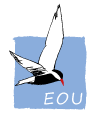We are currently seeking to hire a post-doc and a PhD student to undertake ornithological research in urban environments in Turin, Italy, as part of a large, multi-partner, national-scale project.
Urbanization represents one of the most severe forms of human impact. However, urban areas are expanding, hence environmental impacts of urbanization are increasing, and they are likely to continue to do so in the future. There is therefore a challenge to develop cities sustainably whilst minimising effects on the environment. It should also be acknowledged that urban biodiversity, whilst often depauperate and ‘artificial’, has benefits to the urban human population. Proactive management to enhance the value of green space to citizens contributes to the development of green infrastructure (i.e. networks of healthy ecosystems) and the ecosystem services they provide (e.g. climate change mitigation, flood defence, air quality) and thus has the potential to create healthy, resilient cities for both people and biodiversity. To formulate strategies for the sustainable development of cities, it is crucial to understand the relationship between biodiversity and its key drivers in urban areas, that include habitat, but also disturbance factors (including light and noise pollution), interactions with non-native species and socioeconomic context.
We are seeking two highly motivated and ambitious individuals to work on a project that will increase our understanding of the key drivers of biodiversity along urbanization gradients, with a focus on public green spaces. Drivers will include both habitat and management features, and social and economic aspects. A key component will be the public’s perception of urban biodiversity and the identification of features of green spaces that are valued by people. The project is part of a national-scale initiative to understand and improve biodiversity, and its associated benefits, in Italian cities. The project thus represents a great opportunity to be involved in wider collaborations with other institutions, and to integrate ornithological data with other biodiversity and environmental data in order to assess whole system impacts.
Work required – surveys of birds across a range of sites along the urbanization gradient in Turin (and other cities); operation of automated acoustic recorders; analysis of existing biodiversity and socioeconomic data; questionnaire surveys of park users; outreach activities. Sampling of other taxa (e.g. invertebrates, plants) may also be necessary.
Skills needed – experience in urban ecology; experience in data analysis, preferably linking biodiversity data to socioeconomic variables in an urban context; knowledge of urban birds and ideally the ability to carry out bird surveys; good communication skills (especially with the general public). An ability to speak Italian is desirable, but not essential.
The start date of the posts is likely to be in January 2023 (though there is a degree of flexibility). Both the post-doc and PhD are fully funded for three years. Informal expressions of interest should be made to [email protected]

Recent Comments